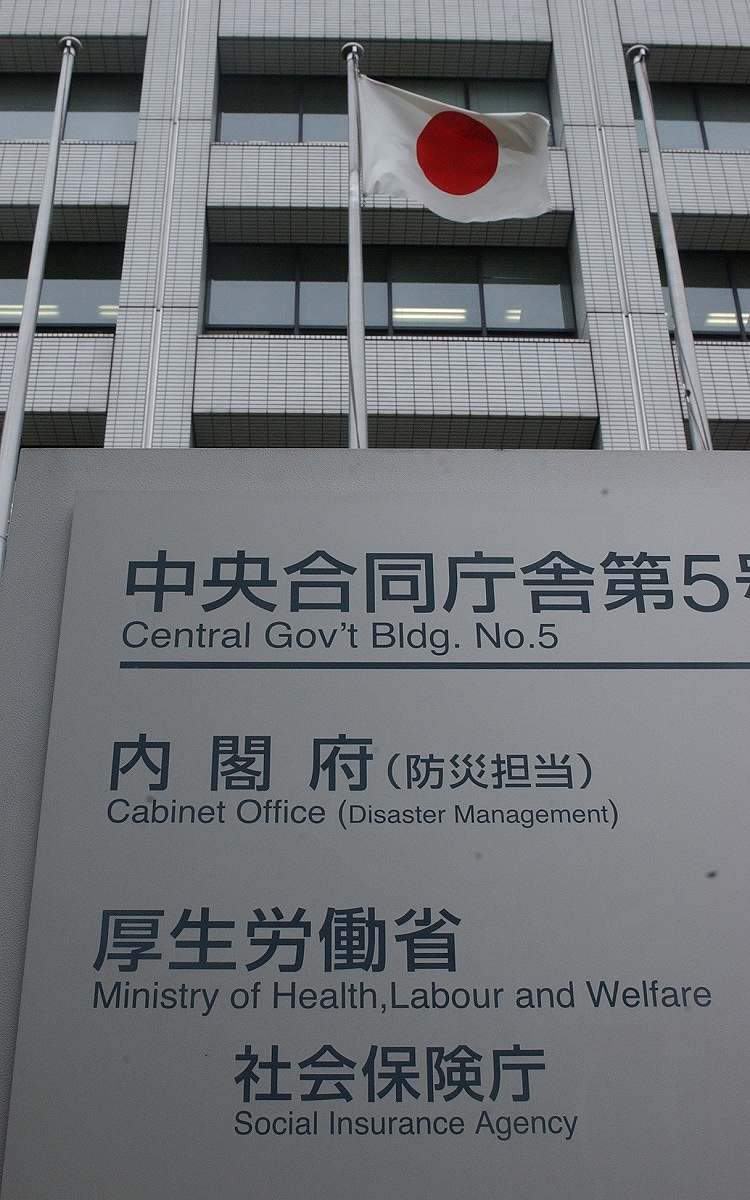Suicide of Japan Employee Linked to ‘Customer Harassment’; Authorities Attribute Mental Illness to Relentless Complaints

The building that houses the Health, Labor and Welfare Ministry in Tokyo
6:00 JST, July 24, 2024
The suicide of a then 24-year-old male employee in 2020 has been recognized as stemming from mental illness mainly caused by abusive behavior, known as “customer harassment,” The Yomiuri Shimbun has learned.
A labor standards inspection office in Kashiwa, Chiba Prefecture, has recognized the death as a work-related accident. It is highly unusual for a link between customer harassment and suicide to be named as a causal factor in such a case.
The employee joined Polus Co., a housing manufacturer based in Koshigaya, Saitama Prefecture, in April 2019, and he was in charge of sales of custom-built houses at an affiliate firm. At the end of August 2020, while working at a housing exhibition site in Chiba Prefecture, he jumped to his death from his room in the company dormitory.
His parents filed a workers’ compensation claim in February 2022, and the claim was recognized in October last year.
According to sources, including documents that recognized the case as a work-related accident, the man had been repeatedly berated by a customer since February 2020. The trouble began when the employee explained to the customer, who was building a new house, that the customer needed to pay additional expenses.
Among other things, the employee was forced to clean an exterior wall on an adjacent property that a contractor had stained. The customer also vented his anger when the man did not answer his phone on his day off.
However, the man’s supervisors were not aware of the details of these complaints from the customer.
In early August 2020, the customer complained in a strong tone that a contractor was parking on the street near a job site, inconveniencing nearby residents. The man’s mobile phone contained an audio recording of the customer severely scolding the man, making such comments as “Considering this situation, I can’t pay” and “Sorry doesn’t cut it.”
According to sources, the employee visited the customer’s house with the site supervisor and apologized, but was lectured by the customer for about 20 minutes and called an idiot.
Based on these facts, the labor standards inspection office noted that the man had “received orders or requests from a customer that were difficult to respond to” and “faced abusive behavior from a customer,” both of which are included in the criteria for recognizing a work-related accident caused by mental illness.
The office concluded that the man had developed a mental disorder as a result of the heavy psychological burden.
In September last year, the Health, Labor and Welfare Ministry named “abusive behavior,” like the actions seen in this case, as a type of customer harassment and added it to the new criteria for the recognition of work-related accidents.
Lawyer Teruyuki Ogoshi, who represents the man’s parents, told The Yomiuri Shimbun: “It’s difficult for a company to take strong action against a customer who brings benefits to the company, and it’s also difficult for the issue of harassment to come to light. However, in this case, we had a record of the phone call, which was a deciding factor in its being recognized [as a work-related accident].”
The recognition of the situation as a work-related accident also raised the issue of the company’s response, as the business had no rules for consultations and reporting when receiving complaints.
“We take seriously the recognition of a work-related accident for reasons such as harassment, and we are responding to the bereaved family in good faith,” Polus said. “We will continue our efforts to prevent a recurrence of similar problems.”
The company said it is working to expand its consultation services on customer harassment and to provide mental health care in cooperation with external organizations.
‘Customers aren’t god’
People should not think that being a customer means they can do anything they want, the parents of the deceased company employee told The Yomiuri Shimbun. They also expressed their hope that such tragedies will not happen again.
According to the parents, their son was awkward from an early age but had a strong sense of responsibility. In his first year at work, he was honored by the company for his good sales performance.
Two months before his death, however, the man told his father that he was having trouble in his second year at the office.
“Everyone seems so busy, so they don’t have time to help me,” the employee was quoted as saying. The parents continue to blame themselves for not being aware of their son’s problems.
“I wish the customer had imagined, even just a little, what it’s like to have someone mad at you,” the father said.
The man’s mother said, “I hope the company will create a working environment in which people can ask for help.”
Top Articles in Society
-

Producer Behind Pop Group XG Arrested for Cocaine Possession
-

Man Infected with Measles Reportedly Dined at Restaurant in Tokyo Station
-

Man Infected with Measles May Have Come in Contact with Many People in Tokyo, Went to Store, Restaurant Around When Symptoms Emerged
-

Woman with Measles Visited Hospital in Tokyo Multiple Times Before Being Diagnosed with Disease
-

Australian Woman Dies After Mishap on Ski Lift in Nagano Prefecture
JN ACCESS RANKING
-

Producer Behind Pop Group XG Arrested for Cocaine Possession
-

Japan PM Takaichi’s Cabinet Resigns en Masse
-

Man Infected with Measles Reportedly Dined at Restaurant in Tokyo Station
-

Israeli Ambassador to Japan Speaks about Japan’s Role in the Reconstruction of Gaza
-

Videos Plagiarized, Reposted with False Subtitles Claiming ‘Ryukyu Belongs to China’; Anti-China False Information Also Posted in Japan























